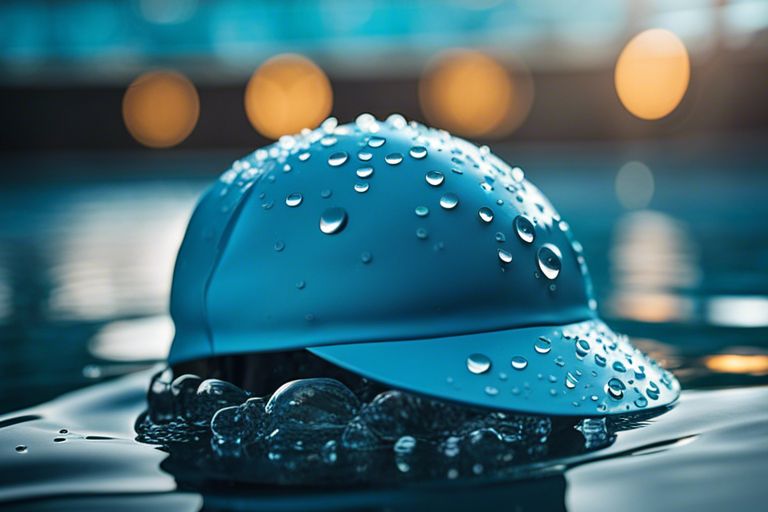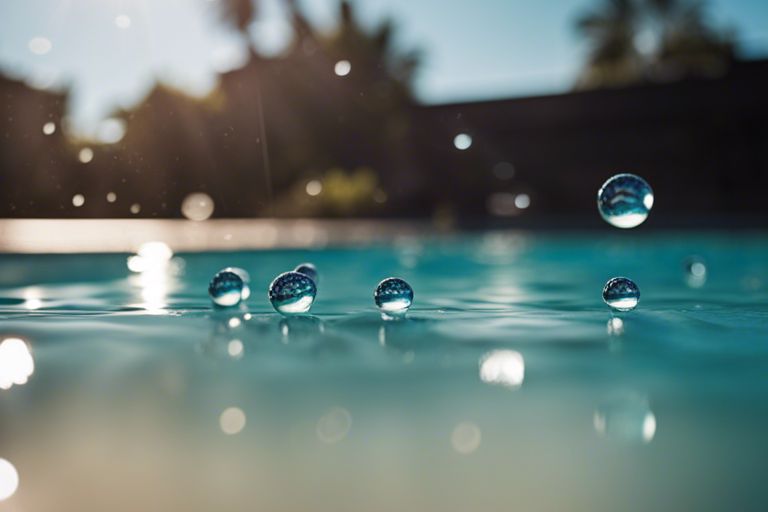Have you ever wondered if swim caps are truly waterproof? In this informative post, we’ll examine the science behind swim caps and answer the question once and for all. From materials to fit, we’ll explore what makes a swim cap waterproof and how you can ensure a watertight seal while in the pool. Stay tuned to learn all about the functionality of swim caps and how they can help keep your hair dry during swimming sessions.

Key Takeaways:
- Swim caps are not waterproof: Swim caps are designed to keep hair out of the face and reduce drag in the water, but they are not completely waterproof.
- Swim caps can help protect hair from chlorine and salt water: While swim caps may not keep water out completely, they can provide a barrier between hair and harmful chemicals or salt in the water.
- Wearing a swim cap can help maintain hairstyle: By keeping hair in place, swim caps can help preserve hairstyles and prevent tangles while swimming.
Understanding Swim Caps
Materials Used in Swim Caps
Your swim cap’s material greatly impacts its performance. Silicone caps are durable and provide a snug fit while latex caps are more affordable but less durable.
Types of Swim Caps
Swim caps come in various types such as silicone, latex, and Lycra. Each type offers unique benefits, so it’s imperative to choose based on your specific needs and preferences.
| Swim Cap Type | Benefits |
| Silicone | Durable and snug fit |
| Latex | Affordable but less durable |
| Lycra | Comfortable and quick-drying |
To make an informed decision, consider the fit, durability, and comfort each type offers. Understanding the different swim cap types will help you choose the best one for your swimming needs. Knowing the benefits of each material is crucial for a satisfying swimming experience.

Waterproof vs. Water-Resistant Swim Caps
Definition of Waterproof and Water-Resistant
Caps labeled as waterproof are designed to prevent any water from passing through the material, keeping the head completely dry. On the other hand, water-resistant caps are made to repel water to a certain extent but may eventually allow water to seep through over time or under pressure.
Testing for Water Resistance
On swim caps, water resistance is tested by subjecting them to various water pressures or immersing them in water for a specific period. This helps determine how effectively the cap can keep water out and how long it stays water-resistant.
Waterproof swim caps undergo rigorous testing to ensure they are completely impervious to water. This involves stringent quality control measures and materials designed specifically to ensure the cap remains dry even under extreme conditions.

Benefits of Using Swim Caps
All swimmers, whether recreational or competitive, can benefit from using a swim cap. If you are in need of a high-quality swim cap, consider trying out the Swimming Cap, Silicone Swim Cap for Women Men … for a durable and non-slip option.
Protection for Hair
Any swimmer knows the damage chlorine and salt water can cause to hair. A swim cap provides a protective barrier, keeping your hair dry and preventing it from getting damaged by chemicals or tangles from swimming.
Improved Swimming Performance
Using a swim cap can actually help improve your swimming performance. It reduces drag in the water, making you more streamlined and allowing you to move through the water with less resistance. This can lead to faster swim times and overall better performance in the pool.
Plus, a swim cap can also help keep your body temperature more regulated during swimming, as it helps to retain heat and prevent rapid cooling in the water. This can be especially beneficial for longer swims or open water races where maintaining body temperature is crucial for performance.
Summing up
The use of swim caps is not to keep hair dry but to improve hydrodynamics in the water and make swimmers more streamlined. While swim caps are not completely waterproof, they do offer some protection and can help prevent hair from getting overly saturated. It is important to understand their purpose to manage expectations when it comes to keeping hair dry while swimming.
FAQ
Q: Are swim caps waterproof?
A: Yes, swim caps are designed to be waterproof. They are made from materials such as silicone, latex, or lycra that create a barrier to keep water out of your hair while swimming.
Q: Can I wear a swim cap to keep my hair dry?
A: While swim caps are primarily designed to reduce drag and keep hair out of the face, they can help keep your hair relatively dry. However, it’s important to note that swim caps may not completely prevent water from seeping in, especially if you have long hair or the cap is not worn properly.
Q: How do I properly wear a swim cap to maximize its waterproof capabilities?
A: To ensure your swim cap is as waterproof as possible, start by placing it over your forehead and pull it over the rest of your head, covering your ears. Make sure there are no wrinkles in the cap, as this can allow water to seep in. Tuck any stray hairs under the cap to create a better seal against water.



